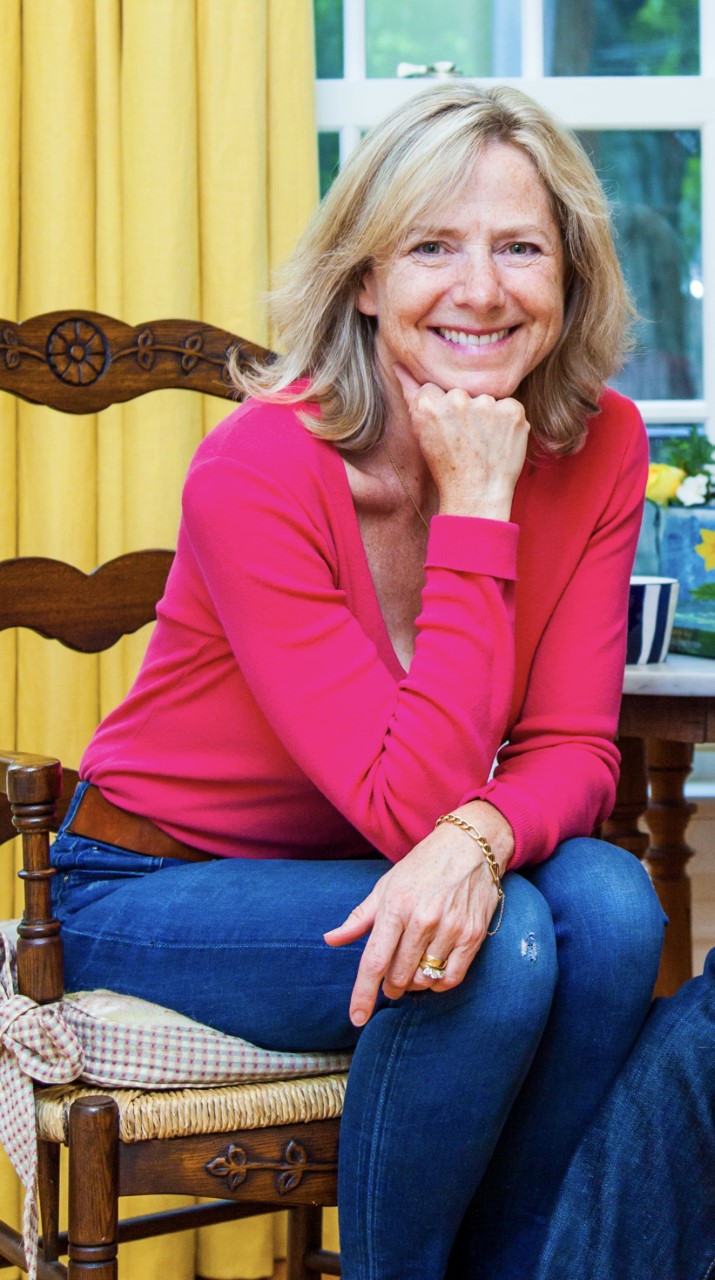Alumnus, Joannah (Smith) Lawson, is no stranger to change. After working professionally in Change Management for over decade, she turned her focus to nutrition, intent on shifting our approaches to food production and consumption.
As a certified nutritionist, and the co-founder of the Brian and Joannah Lawson Family Foundation, Joannah’s at a point in her career where she can contribute her time and expertise to initiatives that are important to her and serve the public good – promoting an environmentally sustainable and healthy food system in Canada, and supporting education and global research in child and maternal health, just to name a few.
The Lawson Centre for Child Nutrition at U of T’s Faculty of Medicine, and the Integrated Sustainability Initiative at U of T’s Trinity College are just two of the programs that have benefited from the Lawsons’ generous support.
Despite a very active schedule, Joannah very kindly took the time to answer our questions about her career, the family foundation, and how her work inspires her to leap out of bed every single morning. You can check out our full interview below.
If you’re an alumnus of the CIRHR and would like to be profiled in an upcoming “Alumni Spotlight,” please contact cirhr.communications@utoronto.ca.
You arrived at the Centre with a B.A. in Industrial and Organizational Psychology from Western University. What were your primary goals/aspirations for this next stage of your education – were there certain areas of exposure/learning you were hoping the Master in Industrial Relations program would provide?
I had considered a more general degree continuing on in Psychology, but I loved the practical courses in the MIR program and the combination of HR, business, law and IR. I am very grateful to have taken this program, and for the on-campus assistance with both my studies at the Centre and career recruitment. It turns out I was well prepared for an excellent career in this field and was hired immediately, starting work upon graduation.
Can you describe your first professional role following your graduation from the Centre, and what the transition from academia to the world of work was like for you? Were there any experiences at the Centre that informed (or continue to inform) your work?
 My first professional role was a full-time job with Nortel Networks. I was hired into a special management training function where I got to spend the first three years moving across five roles in different geographies to learn various aspects of the business. It was an honour to be selected for this program and it would not have happened without having a master’s degree with a specialization in HR.
My first professional role was a full-time job with Nortel Networks. I was hired into a special management training function where I got to spend the first three years moving across five roles in different geographies to learn various aspects of the business. It was an honour to be selected for this program and it would not have happened without having a master’s degree with a specialization in HR.
After more than a decade at Nortel, you shifted your focus to nutrition – can you talk a little bit about what drew you to nutrition and why this was a meaningful/important shift for you?
My university studies and work experience focused on leadership development and change management. I loved my career but after the sad demise of Nortel, I needed a new career. Instead of moving to another company, I decided to go back to school to study nutrition as I had been learning about the power of food to positively impact health and the environment. At first, it seemed like a big change in careers until I realized that shifting individual, organizational and societal approaches toward food production and consumption is actually a massive change-management undertaking. As such, my previous career prepared me well for the next phase of my life’s work.
What's keeping you engaged today? I’d love to hear more about the inspiration/genesis of the Brian and Joannah Lawson Family Foundation, and whether there are any key initiatives you’re particularly excited about at the moment.
I love working with my husband Brian who is also a U of T grad (Trinity 1982). We are passionate about all of our work to mitigate climate change and improve human health through the food system. More recently we have appreciated focusing more on regenerative farming for the potential to reduce and actually reverse climate change. This can happen by sequestering carbon back into the soil with regenerative farming techniques. It is most exciting when we get to partner with non-profits, farmers and other foundations doing incredible work. When we can work on projects with positive, multiplier effects – on climate, human health, and the economy – our work is especially rewarding.
And lastly, do you have any advice for incoming or graduating students at the CIRHR?
Focus on what you love most – that way, you will be inspired to jump out of bed every morning to start your work day. Never compromise your values, and be sure to share your success with those who partner with you. True success is achieved through partnerships and collaboration.


